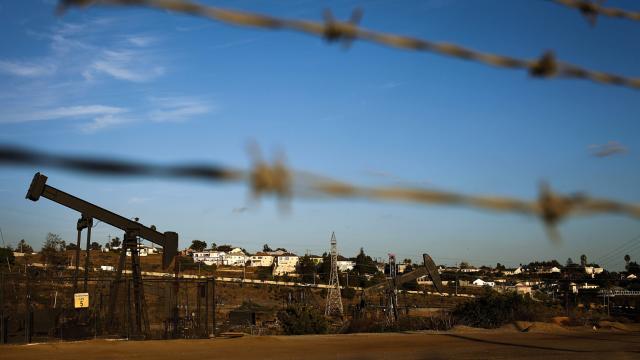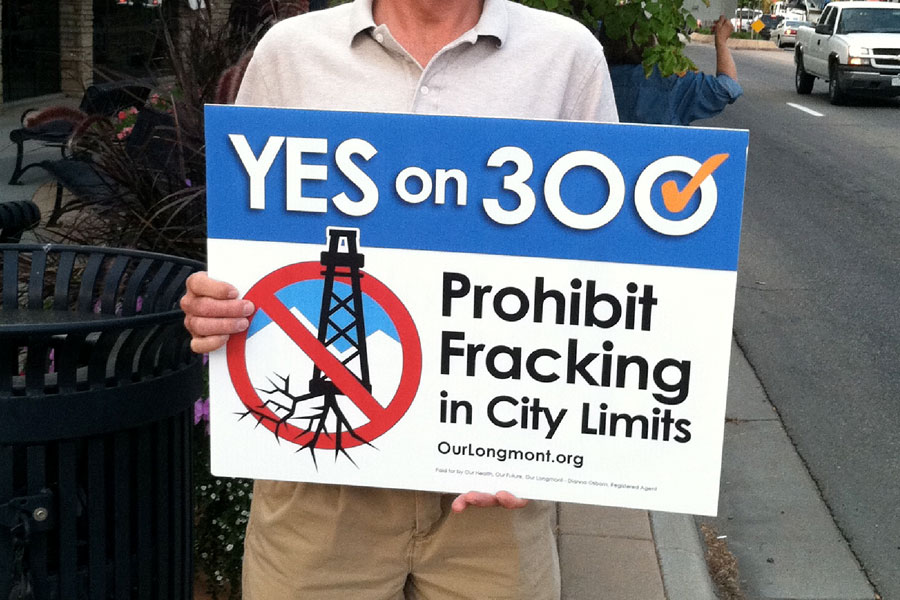
Three Colorado cities have rejected oil and gas production work that relies on so-called fracking, unofficial election returns showed on Wednesday in a setback for an industry that won other battles this year in Democratic strongholds like California.
Boulder, Lafayette and Fort Collins passed measures with solid margins to suspend or ban the technique formally known as hydraulic fracturing. But a fourth community, Broomfield, about 12 miles east of Boulder, narrowly rejected a fracking moratorium.
In Fort Collins, near the growing Niobrara field, 56 percent of voters approved a five-year ban on fracking, despite a resolution its city council passed urging voters to reject it.
A dozen states including California have clear rules for fracking, but the practice is banned in New York and some think Colorado could be a battleground in the U.S. energy boom.
There is "possibility of a state-wide ban finding its way onto the 2014 Colorado ballot," said Paul Enockson, a lawyer with BakerHostetler in Denver who has represented oil firms.
Hydraulic fracturing, done after horizontal drilling, pumps pressurized water, sand and chemicals underground to crack shale rock to release oil or gas.
Environmental groups say fracking can contaminate water supplies, but the industry says it is safe and that boosting gas output will create jobs and help states replace dirty coal-burning power plants with ones fueled by cleaner gas.
"This election represents round one with many more rounds to come," said Tisha Schuller, president of the Colorado Oil and Gas Association (COGA), an industry group that opposed the measures.
"Boulder and Lafayette were nothing more than symbolic votes. Lafayette's last new well permit was in the early 1990's and Boulder's last oil and gas well was plugged in 1999," she said.
Court Battles
Colorado's daily output of crude oil has surged to around 182,000 barrels a day, but is still a scant 2.4 percent of total U.S. production, according to the Energy Information Agency.
Industry experts believe much of the best oil and gas deposits could be on federal tracts of land in the western part of the state that are not currently in production.
The municipal bans may clash with fracking standards the Colorado Oil and Gas Conservation Commission introduced this year that require wells to be located away from houses and established rules for noise, dust and chemicals.
The state's oil and gas commission grants more than 1,000 annual permits for hydrocarbon wells.
"The decision of whether or not hydraulic fracturing occurs in these Colorado communities may ultimately lie with the courts, where the city of Longmont is already being sued by COGA and the state of Colorado over its fracking ban, but at least for now, the people have spoken," wrote Gretchen Goldman, analyst at the Union of Concerned Scientists' Center for Science and Democracy.
Though environmental groups declared victory in a swing state, the gas industry has made inroads this year.
Prior to the votes in Colorado, Marty Durbin, head of America's Natural Gas Alliance, said more and more states were becoming convinced of the safety of fracking.
Democratic Gov. Jerry Brown of California, the world's 9th largest economy, signed a law in September that specifically allows it.
3 WAYS TO SHOW YOUR SUPPORT
- Log in to post comments












